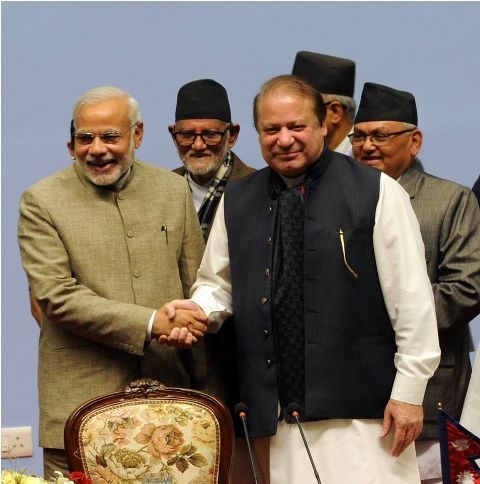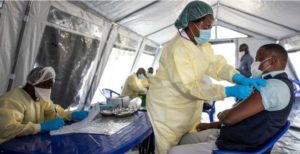SAARC summit commits to make South Asia a common tourist destination

By Ramesh Tiwari / TBN ———
Kathmandu: The 18th Summit of Heads of States and Governments of eight South Asian countries concluded here today endorsing 36 point ‘Kathmandu Declaration’.
The foreign ministers of eight member countries of South Asian Association for Regional Cooperation (SAARC) signed SAARC Framework Agreement on Energy Cooperation (Electricity) at the concluding ceremony of the summit held here today.
The chairperson of 18th SAARC Summit and Nepal’s Prime Minister Sushil Koirala said that the summit has given a new impetus to the SAARC.
Pakistan’s Prime Minister Nawaz Sharif said that Pakistan will be looking forward for the member countries at the 19th SAARC Summit in Islamabad in 2016.Sharif shook hands and exchanged greetings with Indian PM Narendra Modi at the concluding ceremony of the two-day summit.
Earlier the South Asian leaders attended a retreat held in Dhulikhel , 30 kms from the capital city Kathmandu.
Heads of State and Government from eight SAARC member states – Afghanistan President Mohammad Ashraf Ghani , Bangladesh Prime Minister Sheikh Hasina, Bhutanese Prime Minister Lyonchhen Tshering Tobgay , Indian Prime Minister Narendra Modi, Maldivian President Abdulla Yameen Abdul Gayoom, Nepal’s Prime Minister Sushil Koirala , Pakistani Prime Minister Nawaz Sharif and Sri Lankan President Mahinda Rajapaksa attended the Kathmandu summit held three years after Maldives summit in 2011.
Pakistan is to host the 19th SAARC Summit in its capital, Islamabad in 2016.
According to the Ministry of Foreign Affairs of Nepal ,the leaders directed the Ministers to hold a meeting within three months to finalise the SAARC Motor Vehicles Agreement for the Regulation of Passenger and Cargo Vehicular Traffic and SAARC Regional Agreement on Railways.
The Summit adopted the Kathmandu Declaration with a theme of ‘ Deeper Integration for Peace and Prosperity’ to deepen cooperation in core areas of trade, investment, finance, energy, infrastructure and connectivity. The major elements of the Kathmandu Declaration include:
– Accelerating the process of creating free trade in the region,
– Formulation and implementation of projects, programmes and activities of SAARC in a prioritized, focused and result-oriented manner,
– Launching regional and sub-regional projects in the agreed areas of cooperation, especially in the area of poverty alleviation, infrastructure building, connectivity and energy,
– Strengthening the SAARC Development Fund,
– Effective implementation of the SAARC Action Plan on Poverty Alleviation with a view to making South Asian free from poverty and hunger,
– Enhancing regional connectivity through building and upgrading roads, railways, waterways infrastructure, energy grids, communications and air links,
– Utilizing the youth power for socio-economic development, especially through creation of employment opportunities at home and building collective positions for their security and welfare while on employment outside the region,
– Combating terrorism in all its forms and manifestations and having effective cooperation among the Member States for preventing the trafficking in persons, arms and drugs and exploitation of children for forced labour,
– Increasing agricultural productivity and ensuring food and nutritional security,
– Providing quality education, eliminating illiteracy, providing vocational education and training,
– Making South Asia an attractive common tourist destination by promoting public-private partnership.
As a process of reform of SAARC institutions and mechanisms for making them more efficient, effective and result-oriented, the leaders have decided to close down three Regional Centres, namely SAARC Documentation Centre (SDC) in New Delhi, SAARC Human Resource Development Centre (SHRDC) in Islamabad and SAARC Information Centre (SIC) in Kathmandu and transfer their mandates to the Secretariat and other mechanisms.
Likewise, they have also decided to merge four Regional Centres, namely SAARC Coastal Zone Management Centre (SCZMC), SAARC Meteorological Research Centre (SMRC), SAARC Forestry Centre (SFC) and SAARC Disaster Management Centre (SDMC), and create a new Centre named ‘SAARC Environment and Disaster Management Centre’ (SEDMC).
The leaders agreed to hold the meetings of the SAARC Summit every two years, or earlier if necessary; the Council of Ministers once a year; the Standing Committee at least once a year; and the Programming Committee at least twice a year.
Full Text of SAARC Kathmandu Declaration in ECO/ BIZ News Column of the news portal
November 27, 2014















